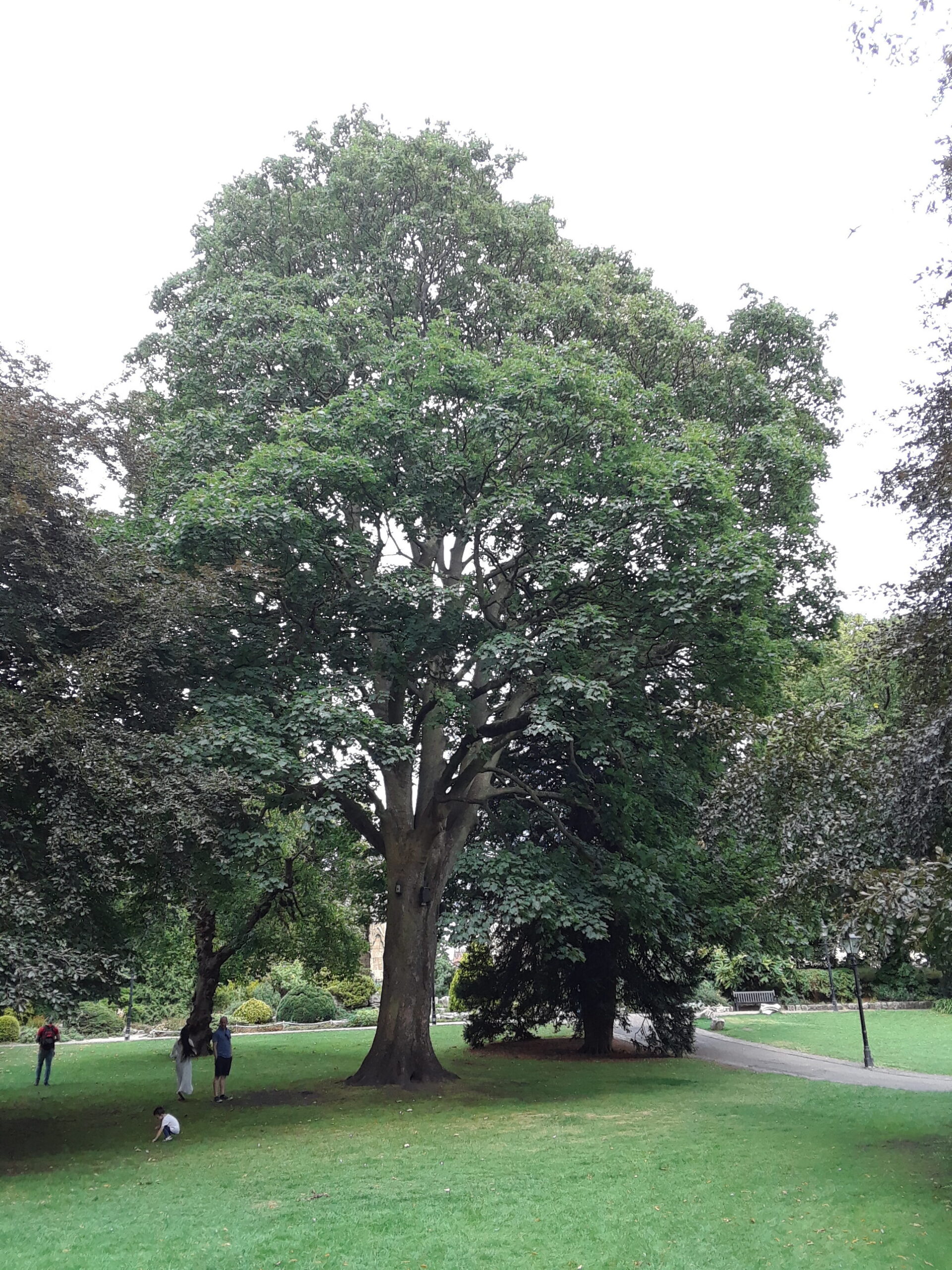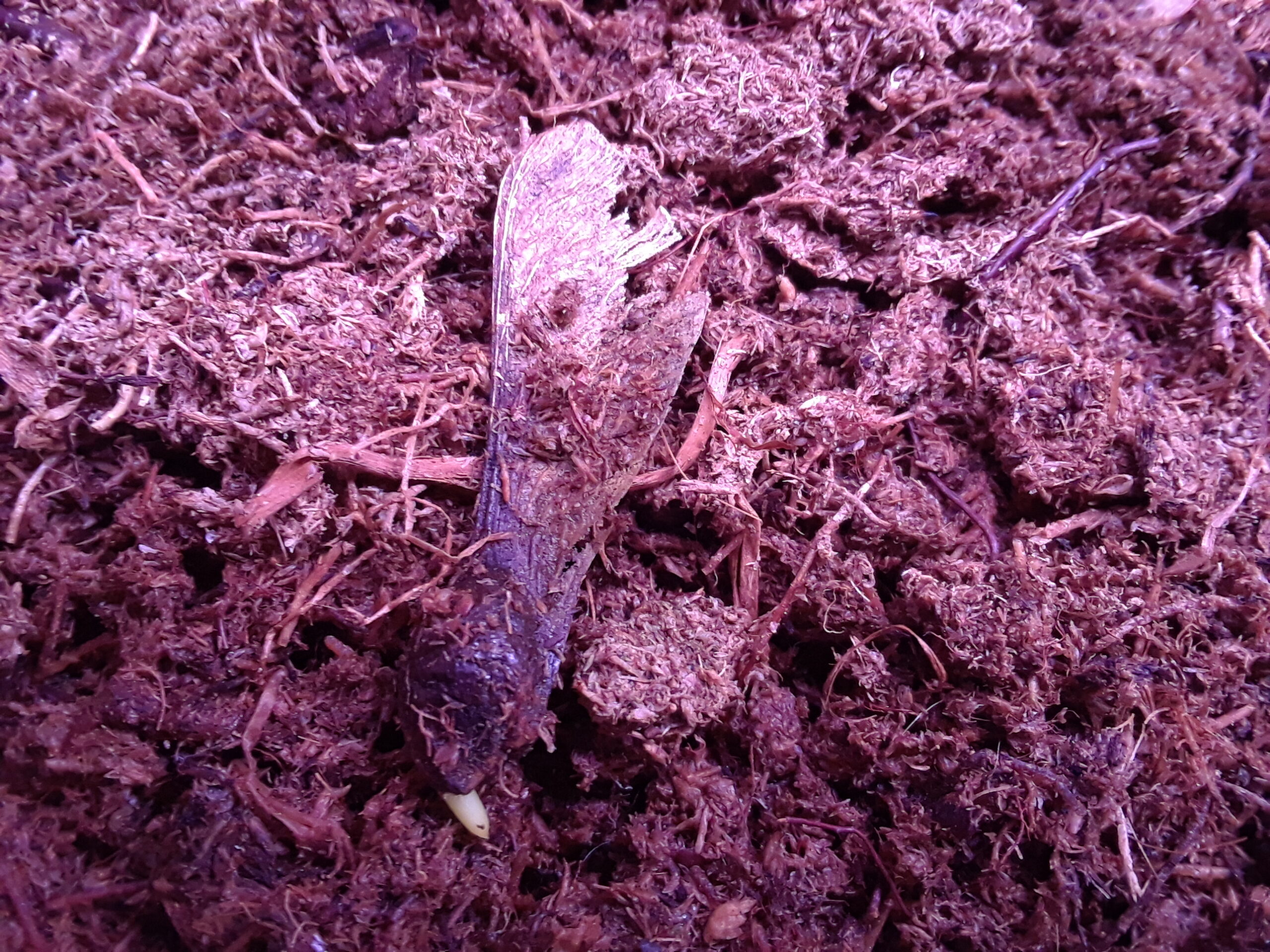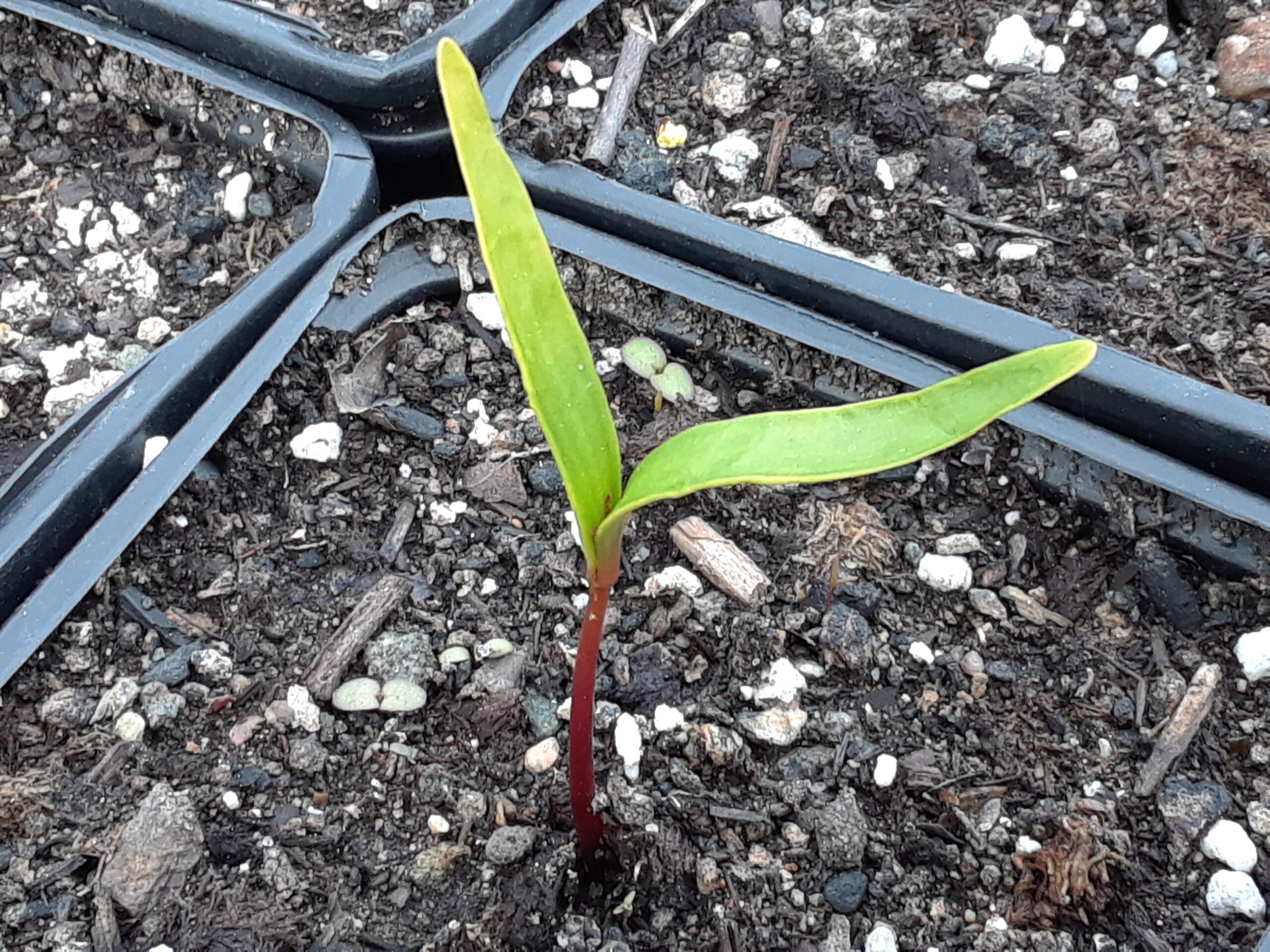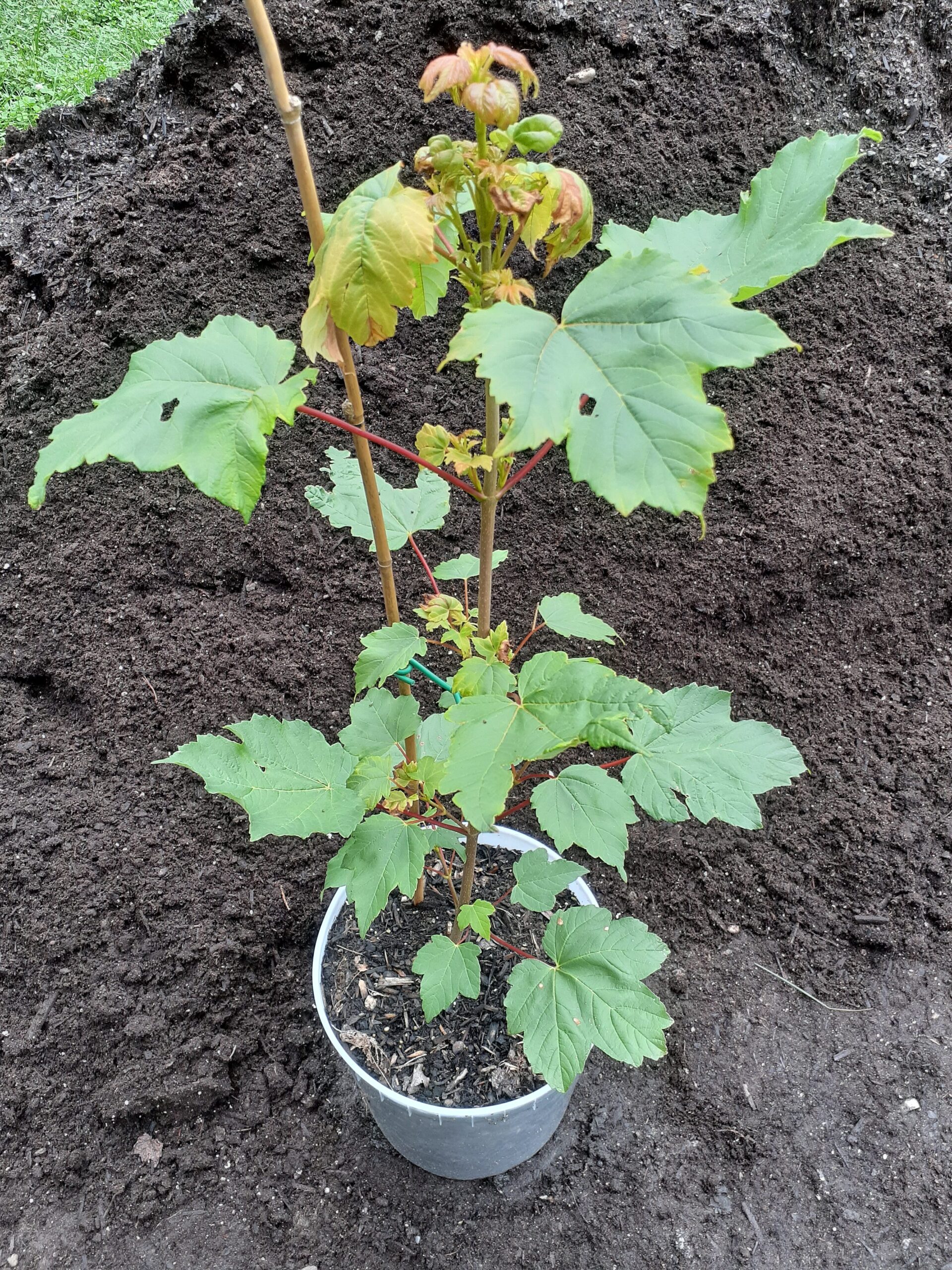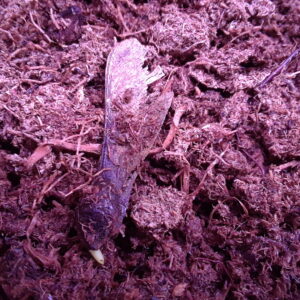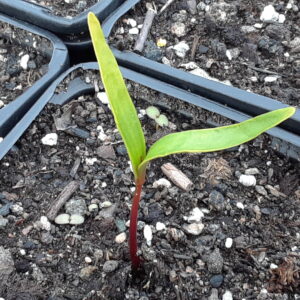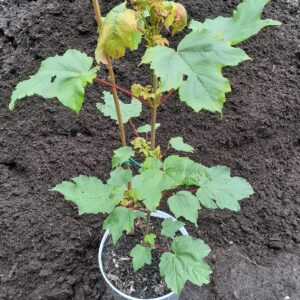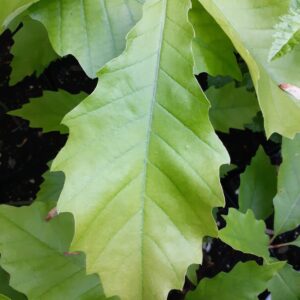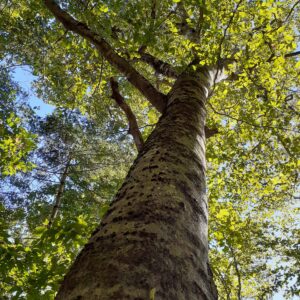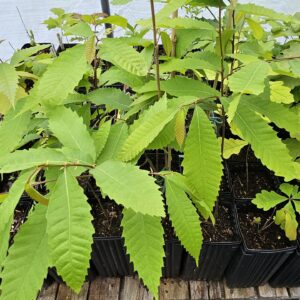Sycamore Maple
(Planetree Maple)
Acer Pseudoplatanus
A huge, shade tree in its native land. Suitable for planting only in large gardens and parks. Rarely seen in New Brunswick though comparable to the very frequently planted non-native Norway Maple. Seeds provide food for local wildlife. Wind pollinated male and female flowers are on the same tree. Maple trees are ‘bleeders’ so prune them in the fall. If pruned in spring they will ooze sap continuously and in summer the sap will attract insects that can transmit disease through the wound. The largest maple species (over 100 feet) when grown in the cooler moister climates of Europe. Does not grow as tall in North America.
Additional information
| Foliage | Deciduous |
|---|---|
| Locale | Native to Europe |
| Height | Large (60-100ft) |
| Width | Wide |
| Form | Broad |
| Growth Rate | Moderate |
| Longevity | Long (over 100 years) |
| Hardiness Zones * | 4, 5 |
| Sun Exposure | Full Sun (over 6 hrs), Partial Sun (4 to 6 hrs) |
| Soil Preferences * | Moist, Slightly Acidic, Well Draining |
| Soil Tolerances | Slightly Alkaline |
| Other Tolerances | Occasional Drought, Road Salt, Urban Pollution |
| Wildlife Value | Bees (flowers), Birds (fruits/seeds), Insect Pollinators (flowers), Small Mammals (fruits/seeds) |
| Human Value | Carpentry (wood), Fuel (wood) |
| Seed Collection | Relatives in UK |


